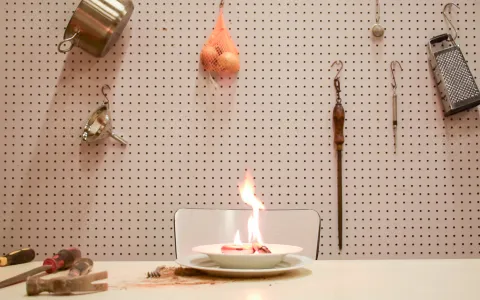Christina Zampoulaki
Every year, the world wastes an average of 1.4 billion tonnes of food. According to the UNEP Food Waste Index 2021, some 931 million tonnes of food waste was generated in 2019, 61% of which came directly from households. In the EU, almost 57 million tonnes of food is thrown away every year. This equates to 127 kilos per EU citizen per year.
Our global food system is so fast moving and generic that it is not easy to put these huge numbers into perspective. Our continuous supply chain means that the final destination of our food must always involve a simple decision: if it's not our stomach, it has to be the bin. This ideology turns our leftovers into utterly worthless waste.
Our kitchens and the products we use in them reflect our communal way of life, our relationship with nature and the urban environment, which can be addressed individually or collectively. Valuing what we have as tools we can use rather than waste we have to deal with can help to change extractivist, human-centred perspectives and redefine our idea of consumption.
The project seeks to answer the following question: How can we measure our waste and what parallels can we draw when thinking about our agency to have an impact on our environment?
BIO
Christina Zampoulaki (n. 1996) is a Greek-American interdisciplinary artist working primarily in sculpture, installation and video art. She graduated recently from the Eindhoven Design Academy. Her work focuses on food and the food supply chains taking shape within the Western capitalist system. Her research addresses our eating habits and how they are shaped by the geopolitical forces that exist within a globalised network. Christina sees food as a political tool that shapes and narrates both the human body and civilisation, but also as a living matter, a living ecosystem constructed by other organisms.
She is a recipient of the Residency for Visual Projects on Sustainability as part of the EU-funded SAiR project.

